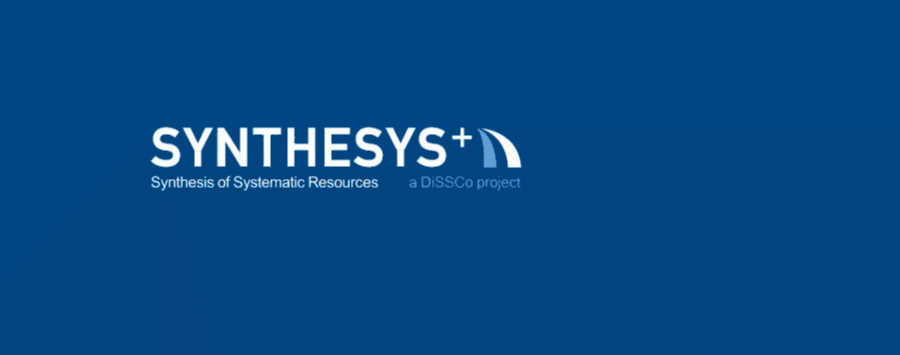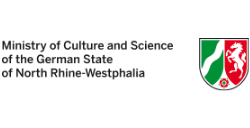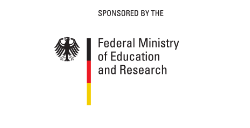
SYNTHESYS + at ZFMK
About SYNTHESYS+
The SYNTHESYS program is a pan-European collections infrastructure project funded by the European Commission that provides access for researchers to the major European museums and collections. In total, SYNTHESYS+ includes 21 partner institutions that comprise collections amounting to more than 390 million natural history specimens, including 4.1 million type specimens.
Access to the collections at ZFMK is possible via two different ways. Either via personal access to our collections and infrastructure with Transnational Access, or via digitization-on-demand with Virtual Access. Between 2019 and 2022 there are four calls for Transnational Access and two for Virtual Access. Further details on application dates and deadlines can be found here.
The Transnational Access program offers funds to cover the costs of a researcher's travel, accommodation, & subsistence, whilst completing a short research visit (usually 15-20 days) at one of the participating organizations. It provides access to collection(s), equipment and other research infrastructure(s) and includes assistance and training from the host institution staff. For questions regarding our collections, please directly contact the curator of the respective collection or the manager of the infrastructure you wish to visit. You can also contact the ZFMK SYNTHESYS+ coordinator (k.wipfler [at] leibniz-zfmk.de) if you need help. The digital catalogue of ZFMK can be found here.
Virtual Access is a digitization-on-demand program, which allows users to request virtual access to collections. Virtual data can include 2D and 3D images of collection items including the transcription of the associated metadata, 3D scans, and molecular or chemical data. In contrast to transnational access, the applicant does not need to visit the collections with Virtual Access. Applications are proposed by a lead applicant who should be supported by several international colleagues as co-applicants to demonstrate the need for the requested data in the research community. Collections from several institutes can be applied for within one application in order to digitize complementary collections across different locations. All data generated in the context of Virtual Access are made publicly available immediately after digitization. Before submitting an application, interested parties must contact the Virtual Access coordinators of all institutions at which data are to be digitized as part of an application. The coordinators create a cost plan for digitization that is mandatory for the application. You can find more information about Virtual Access on the SYNTHESYS + homepage and on the FAQs page. If you are interested and have further questions about Virtual Access at ZFMK, please contact Katherina Wipfler (k.wipfler [at] leibniz-zfmk.de).
Collections at ZFMK
ZFMK is a leading institution for species-related biodiversity research. As the Leibniz Institute for Animal Biodiversity, the core facilities of ZFMK support the research mission: ‘Discovering and explaining biodiversity’, with focus on animal species.
Although the collection contains samples from all over the world, the collection focus is epicontinental animal species, especially in African and Asian taxa. There are also comprehensive reference collections from European regions. We recognize the international consensus regarding the free exchange of scientific information and, in principal, allow access to its collections for both internal and external use. The platform for the development and care of the collections is laid out in the Collection Concept.
The Centre of Taxonomy and Evolutionary Research (zte) houses zoological collections of more than 5.6 million specimens, serving as permanent references for scientific work. We currently provide digital information for >1Mio individuals in our digital catalogue. ZFMK complies with international rules on the management of genetic resources through the Convention on Biological Diversity (Access and Benefit-Sharing; ABS) and the Nagoya Protocol. The biobank holds DNA and tissue collections, at temperatures down to -190 degrees in liquid nitrogen. For endangered species, or for HTS applications, viable cells and biopsies can be processed and stored at ZFMK.
Infrastructure available at ZFMK
The Museum has two facilities for research: the Centre of Taxonomy and Evolutionary Research (zte) and the Centre for Molecular Biodiversity Research (zmb).
ZFMK scientists cover a broad range of expertise with a prominent focus on molecular research. ZFMK is engaged in developing tools for species monitoring and pioneers large-scale DNA barcoding initiatives (e.g. coordination of German Barcode of Life, GBOL).
The institute includes the Biohistoricum - a unique collection of historical biological literature and documents, as well as extensive research libraries. It houses collections of estates, correspondences, illustrations and photography related to the history of biology.
ZFMK houses a molecular and a morphological lab that offer a broad set of methods and approaches. The zmb molecular lab has basic equipment for RNA/DNA isolation and PCR experiments, as well as infrastructure for automated, high-throughput DNA and RNA isolation. Visitors can draw on experience at ZFMK in isolating DNA from ancient and environmental samples. Workflows for anchored hybrid enrichment and transcriptomic and genomic library production for high Throughput Sequencing are well established. The zte morphology lab includes a CT-lab with two µ-computed topographers that can scan specimens up to 17cm in length, a fully equipped histology lab, a scanning electron microscope lab with an environmental SEM that can image without high vacuum and gold covering as well as various digital microscopes.
ZFMK is heavily engaged in digitization of the specimen collections. IT resources include high performance computing clusters, a virtualized server infrastructure for web services, data maintenance and archiving responsible for the BiNHum portal, which allows free access to the collections of six major Natural History museums in Germany.
How to apply?
You can apply to SYNTHESYS+ for a short-term research visit to ZFMK (Transnational Access) if you are working in any other country than Germany. If you are interested in applying for a research visit to ZFMK it is vital to contact the managing scientist of the collection or facility you would like to visit, or the ZFMK SYNTHESYS+ coordinator (k.wipfler [at] leibniz-zfmk.de) prior to your application. Discussing the anticipated proposal with the prospected host is an essential requirement of a successful project bid. It is therefore strongly recommended to apply for SYNTHESYS+ funding collaboratively with your prospective host at ZFMK. You can find a comprehensive FAQs catalogue about the application process on the SYNTHESY+ homepage.
For a Virtual Access application, it is imperative to contact the VA coordinators of all institutions where data is to be generated as part of a project (deadline!). The VA coordinators, in conjunction with the relevant colleagues at the institutions, will assess the feasibility of the project and create a cost plan that is mandatory for the application. Applications for Virtual Access are therefore always written in close cooperation between the applicant(s) and the VA coordinator. VA coordinator at the ZFMK is Katherina Wipfler (k.wipfler [at] leibniz-zfmk.de).






